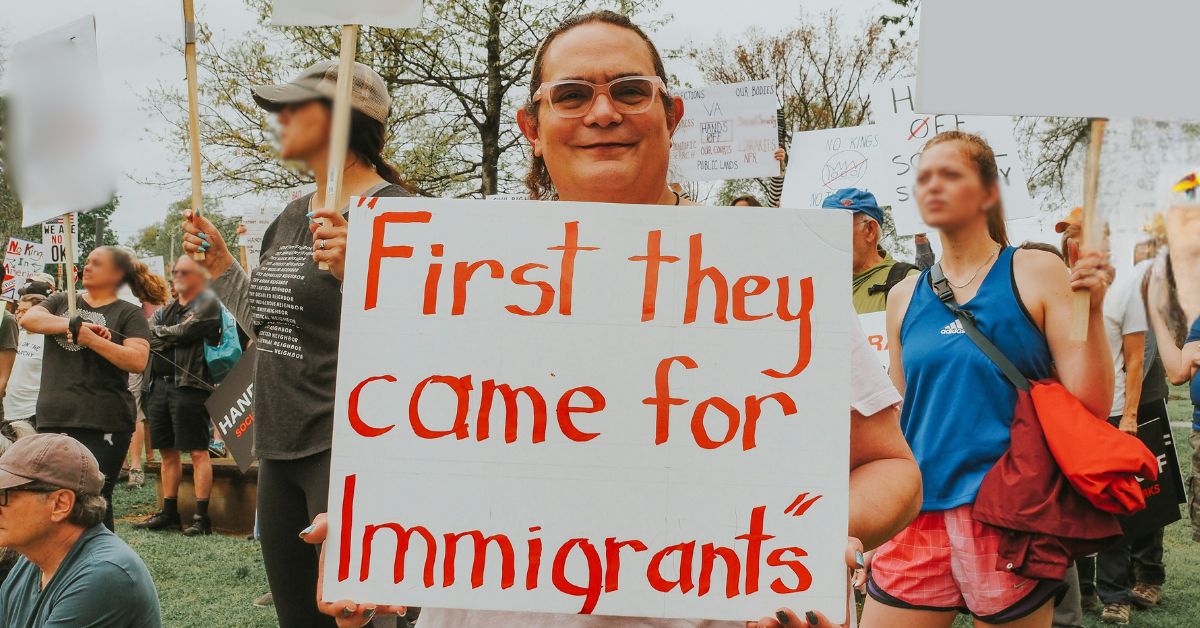Blog
The SAVE Program Doesn’t Save Democracy
Last Updated:
June 10, 2025
Last Updated:
September 11, 2025
Blog
Last Updated:
June 10, 2025
Last Updated:
September 11, 2025

On May 22, 2025, the Department of Homeland Security announced updates to the Systematic Alien Verification for Entitlements (SAVE) program. These changes aim to prevent non-citizens from voting in U.S. elections. While presented as a “common-sense” solution to protect democracy, the policy reflects something far more concerning: a dangerous and misinformed scapegoating of immigrants that undermines our trust in our election systems and puts immigrant communities at risk.
It’s no accident that this push is coming from the Trump Administration, which has a long record of undermining democratic norms—including welcoming Russian interference in the 2016 election and minimizing the violent insurrection of January 6th. If this administration was truly concerned about “election integrity,” it would be addressing those real threats—not vilifying immigrants.
The foundation of this policy is a myth. Voter fraud in the United States is extremely rare. In fact, many politicians, especially Republicans, claim widespread noncitizen voting is a problem, despite lacking solid evidence. The Heritage Foundation, a key advocate for stricter voting laws, has only documented 68 cases of noncitizen voting (10 of which being undocumented) out of over 1,500 voter fraud cases spanning four decades. This represents a rate of less than 0.0001% of total votes cast, an extremely rare occurrence. Most cases involve lawful permanent residents who voted due to misinformation from government officials, not intentional fraud.
In Illinois, for example, many immigrants face unexpected risks when interacting with government agencies like the DMV. Under “motor voter” laws, individuals are often prompted to register to vote while applying for or renewing a driver’s license or state ID, even if they are not eligible to do so. In some states, this process is automated or poorly explained, leading non-citizens to unintentionally register to vote without fully understanding the consequences.
This is not fraud; it’s a design flaw. The result can be devastating and jeopardize future citizenship applications, with the government potentially treating it as a false claim to U.S. citizenship.
Anyone who has gone through an employment-based immigration process knows just how rigorous it is. Immigrants must undergo years of vetting, background checks, interviews, and document reviews often spanning five to ten years or more. These individuals have already had every aspect of their lives subject to inspection by the federal government. They are not trying to game the system. In fact, many are waiting years just to obtain some form of status.
The U.S. already has a strong verification system in place. For example, E-Verify which allows employers to check a worker’s legal eligibility against Social Security and Homeland Security records. Public benefit options often require a valid SSN and interview process. Despite this, the SAVE program is proposing cross-government agency collaboration with ICE. This could create harmful avenues for surveillance and data-sharing between local agencies.
“Allegations of voter fraud ‘shrewdly veil a political strategy for winning elections by tamping down turnout among socially subordinate groups” such as racial minorities, immigrants, and the poor. She goes on to say that “restrictive voter identification rules that cause people to lose their votes also undermine the integrity of the electoral process. The point is there is no integrity without access. We need to simplify our electoral system, not encumber it with more tangled rules justified by myth.’” - Lorraine Minnite, Rutgers University
These policies are not about protecting elections; they are part of a broader pattern of policies that treat immigrants as threats—to jobs, to public safety, and now to democracy.
We need to be vigilant in calling out these tactics for what they are: political theater that endangers lives and disenfranchises the electoral process. Voter eligibility should be protected, yes, but not at the expense of justice, truth, and basic human dignity.
At McEntee Law Group, we stand with immigrant communities and reject the use of citizenship status as a political wedge. We know that immigrants strengthen our democracy—they do not threaten it. If you or someone you know is looking for professional guidance or an immigration attorney for assistance on their case, contact us.